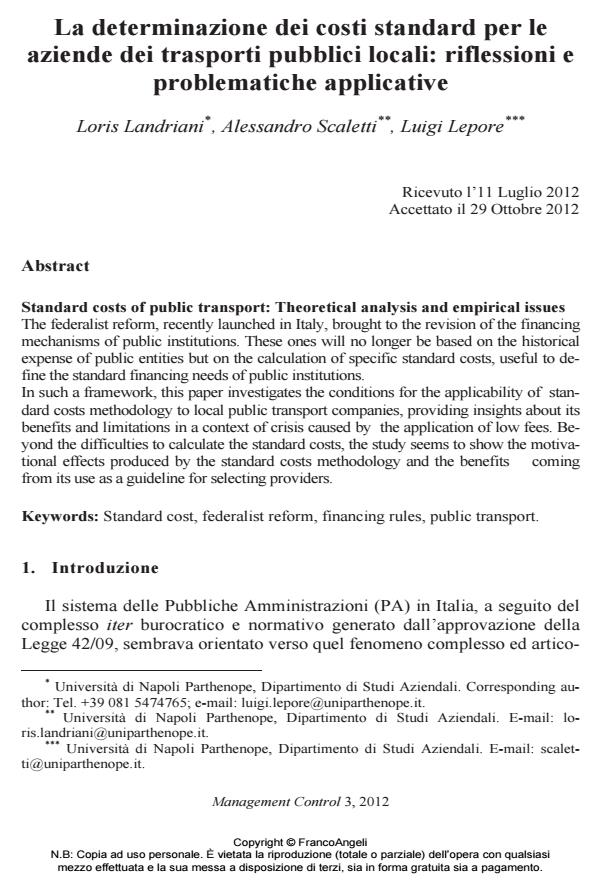Standard costs of public transport: Theoretical analysis and empirical issues
Journal title MANAGEMENT CONTROL
Author/s Loris Landriani, Alessandro Scaletti, Luigi Lepore
Publishing Year 2012 Issue 2012/3 Language Italian
Pages 29 P. 87-115 File size 128 KB
DOI 10.3280/MACO2012-003005
DOI is like a bar code for intellectual property: to have more infomation
click here
Below, you can see the article first page
If you want to buy this article in PDF format, you can do it, following the instructions to buy download credits

FrancoAngeli is member of Publishers International Linking Association, Inc (PILA), a not-for-profit association which run the CrossRef service enabling links to and from online scholarly content.
The federalist reform, recently launched in Italy, brought to the revision of the financing mechanisms of public institutions. These ones will no longer be based on the historical expense of public entities but on the calculation of specific standard costs, useful to define the standard financing needs of public institutions. In such a framework, this paper investigates the conditions for the applicability of standard costs methodology to local public transport companies, providing insights about its benefits and limitations in a context of crisis caused by the application of low fees. Beyond the difficulties to calculate the standard costs, the study seems to show the motivational effects produced by the standard costs methodology and the benefits coming from its use as a guideline for selecting providers.
Keywords: Standard cost, federalist reform, financing rules, public transport.
- Il reporting per segmenti nei settori del trasporto pubblico locale e della cura della salute. Esperienze a confronto Domenico Nicolò, Giuseppe Valenza, in MANAGEMENT CONTROL 1/2020 pp.35
DOI: 10.3280/MACO2020-001003
Loris Landriani, Alessandro Scaletti, Luigi Lepore, La determinazione dei costi standard per le aziende dei trasporti pubblici locali: riflessioni e problematiche applicative in "MANAGEMENT CONTROL" 3/2012, pp 87-115, DOI: 10.3280/MACO2012-003005